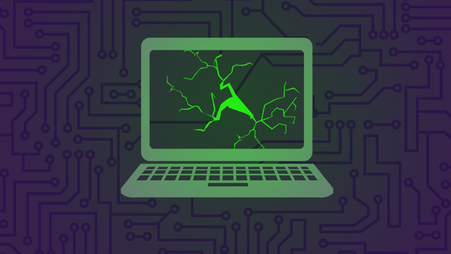It’s the digital security training team at Freedom of the Press Foundation (FPF), with security news that keeps you, your sources, and your devices safe. If someone shared this newsletter with you, please subscribe here.
Memory Integrity Enforcement = Safer iPhones
This is going to get a little nerdy, but stick with me, because this is the best thing Apple has done for iPhone security in years. Let’s talk about memory — no, not the thing that’s slowly slipping away from us all. I mean the part of smartphones and computers responsible for processing your short-term software tasks. Your device needs a place to process actions immediately, and this is where memory comes in. Apple’s new iPhone 17 series includes a new chip that supports a feature Apple calls Memory Integrity Enforcement, which hardens iPhones against some of the most commonly exploited attacks on iOS.
But wait, you ask, “Why are you so excited, Martin? It’s just memory.” This is a big deal because mercenary spyware targeting iPhones nearly always exploits vulnerabilities in memory. With Memory Integrity Enforcement, by default, programs requesting access to memory will essentially be asked for a “secret,” akin to a password, to prove they’re entitled to read and manipulate data on the device. The net effect is that attackers will have a much harder time exploiting your new iPhone. Read more.
What you can do
- Whether or not you have an iPhone 17, lock your phone down. If you’re already getting an iPhone 17, congratulations on your hardened device. However, this might not be accessible to everyone. The iPhone 17 starts at $799 — in this economy? The good news is that you can also lock down your existing phone. We have already seen some evidence that Apple’s Lockdown Mode has had some success blocking mercenary spyware. Learn more about Lockdown Mode here. If you have an Android device running Android 16, Google offers a similar feature called Advanced Protection. Learn more here.
- Learn more about strong smartphone hygiene. Read our guide to mobile device safety.
Updates from our team
- So you want backups of your photos and videos, but don’t want to let cloud providers see your backed-up data. Wow, what a coincidence, our newest advice column explores this exact question! Give it a read.
Our team is always ready to assist journalists with digital security concerns. Reach out here, and stay safe and secure out there.
Best,
Martin
–
Martin Shelton
Deputy Director of Digital Security
Freedom of the Press Foundation





